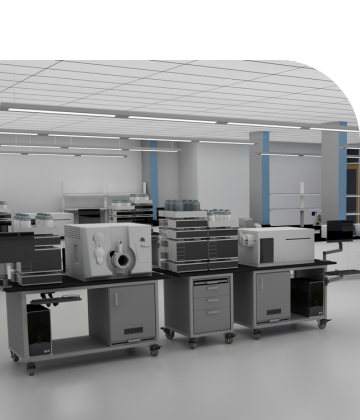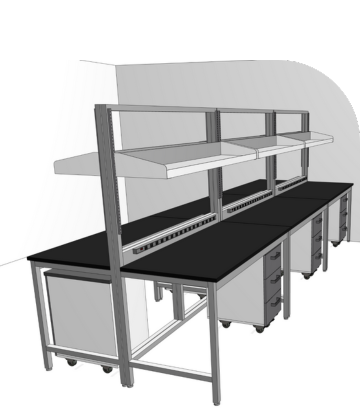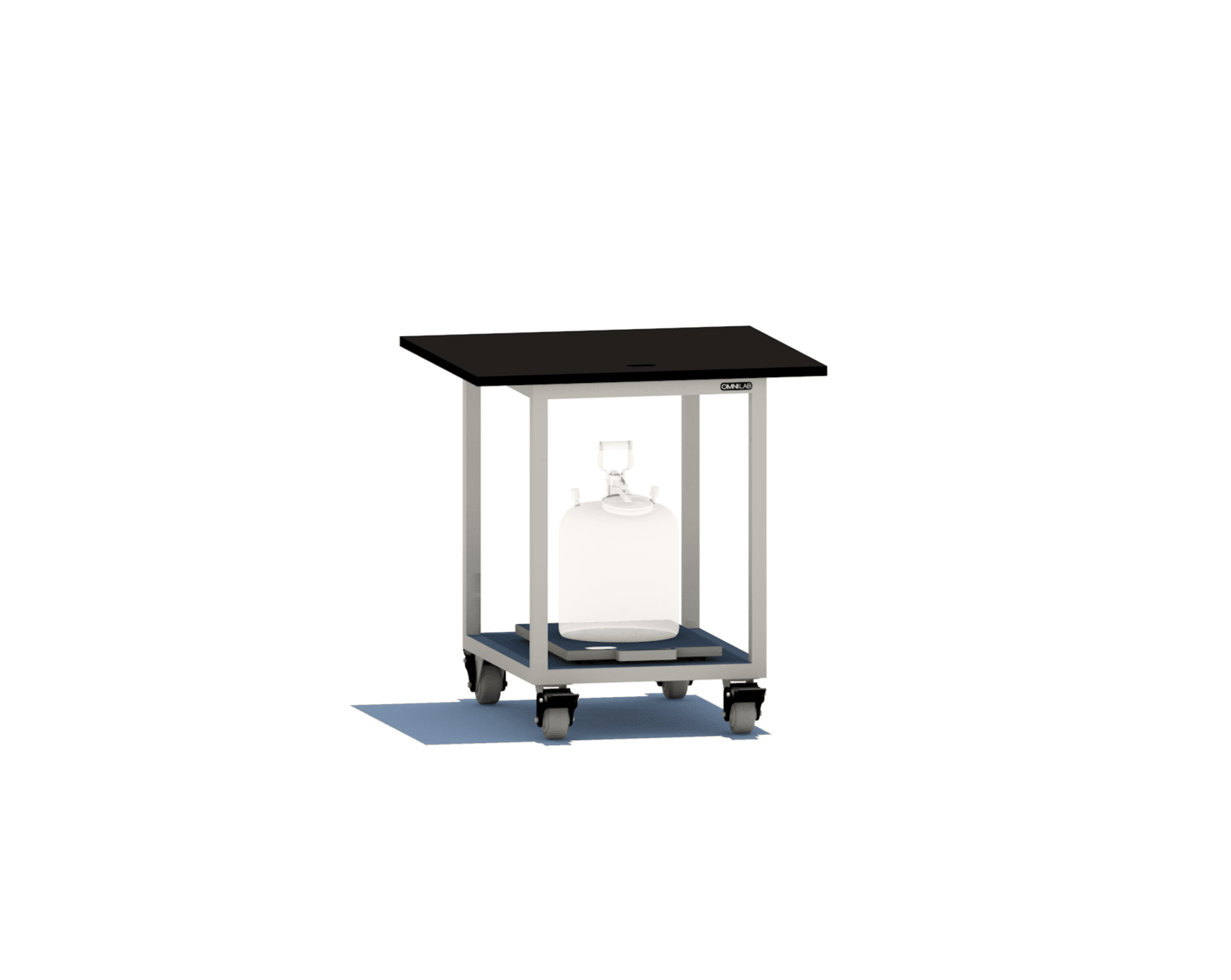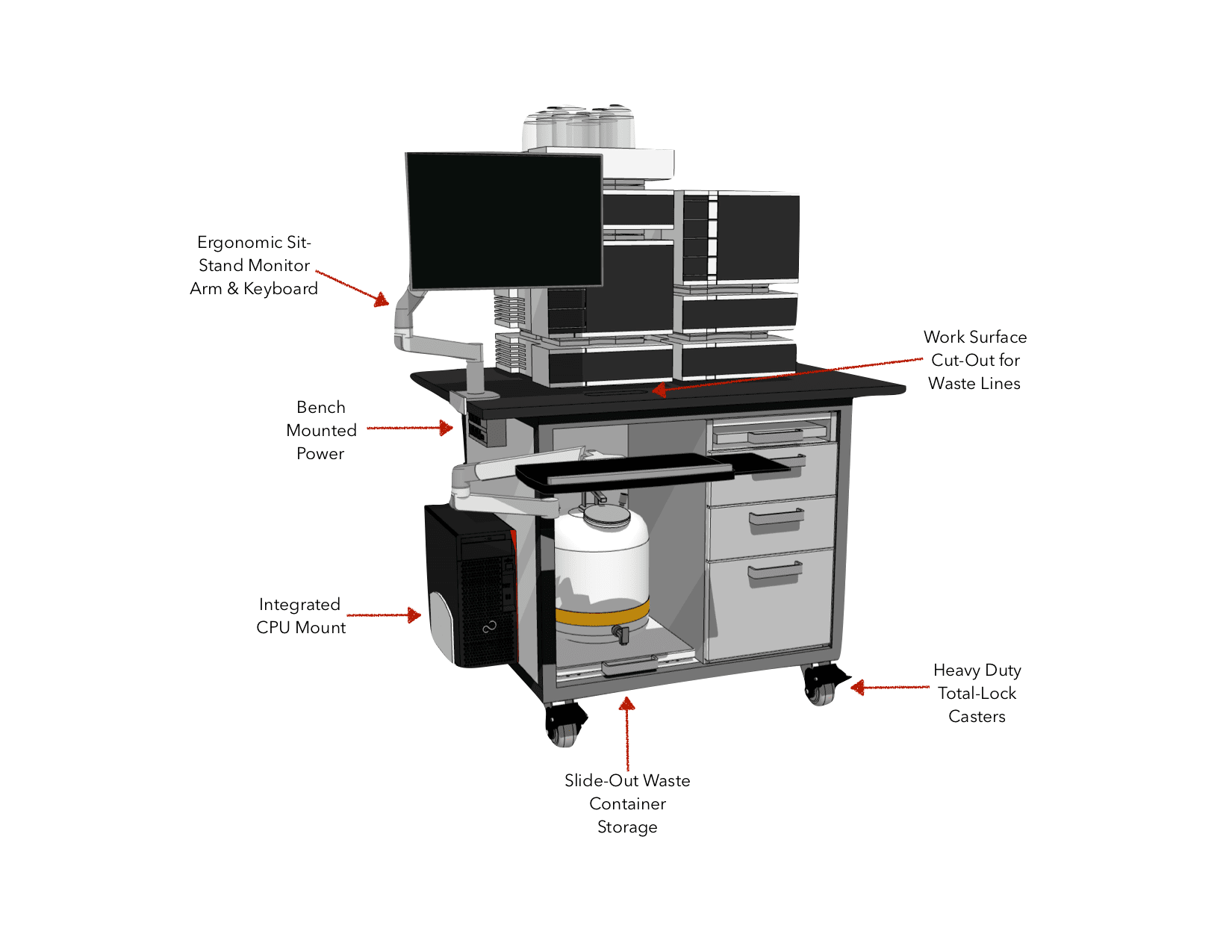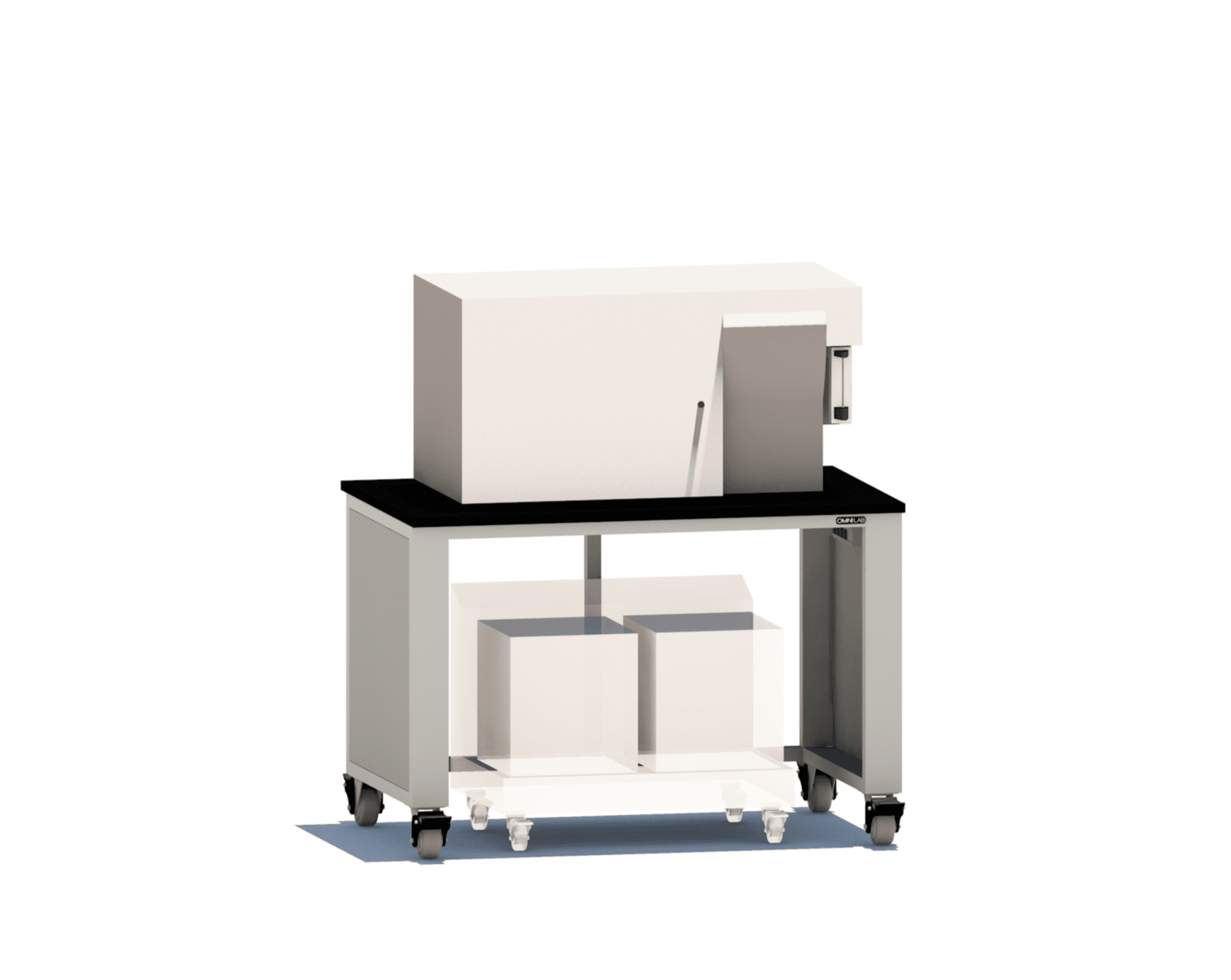A high-quality lab bench can support laboratory operations without needing repair or replacement. A laboratory bench's materials determine its durability. OMNI Labs Solutions uses long-lasting materials that are resistant to heat and chemicals. Here are some materials you may come across when purchasing lab benches.
Phenolic Resin
OMNI Lab Solutions uses Trespa phenolic resin in our lab bench work surfaces. Phenolic resin is a compound resulting from the condensation reaction of formaldehyde and phenol. It's ideal for heat-prone environments as it's non-conductive and flame resistant. Because of its strength and stability, phenolic resin can also withstand stress and cracking. These properties make the material ideal for laboratories that comply with OSHA health and safety standards.
The material is also suitable for laboratories where chemicals are frequently used. Lab workers can work with various biological and chemical compounds without causing surface damage. It's also non-porous and water-resistant, making it ideal for labs that work with bacteria, fungi, and water.
Steel
We use steel for our benches' inset frames as it's durable, customizable, and easy to clean. Steel is a high-strength compound that is difficult to dent or break. It can hold standard lab equipment like mass spectrometers and pumps without buckling. With proper care, our steel inset frames can serve you for years without needing replacement.
Steel's customizability allows us to meet the varying needs of different clients. We can design benches with differing heights and lengths to suit your space. Steel is also chemical and heat-resistant. It's easy to clean and sanitize. We use a rust-resistant coat finish on our frames, so you don't need to worry about rust resulting from constant moisture exposure.
Laminate
Laboratory benches can also be made from laminate, a composite material made of paper and multiple resin layers. Laminate is a popular material option as it's stain, chemical, and heat-resistant. It's also easy to clean, so it can help a laboratory meet its sanitization requirements.
Epoxy Resin
Epoxy resin is a compound achieved by mixing silica, resin, a filler, and a hardener. It's a popular choice for laboratory benches because of its high bacterial, fungal, chemical, and corrosion resistance—this makes it a suitable option for chemistry and biology labs. The material is also sturdy and durable. It is a good choice for laboratory benches intended to hold heavy equipment.
Polypropylene
Polypropylene is a durable plastic produced from a propene monomer. It's ideal in laboratory environments because of its high chemical, stain, and water resistance. The material is also environmentally friendly as it can be reused and recycled.
Look for a Lab Bench Made from High-Quality Materials
The materials used to make laboratory benches should be heat, chemical, and water-resistant, as these things are commonplace in a laboratory. They should also be sturdy and durable enough to hold heavy lab equipment and help manage laboratory costs.
OMNI Lab Solutions uses chemical-resistant phenolic resin and steel to manufacture lab benches. These are some of the best materials as they offer many qualities a lab bench needs to facilitate efficient scientific research. Contact us for quotes on guaranteed-to-last lab benches.
